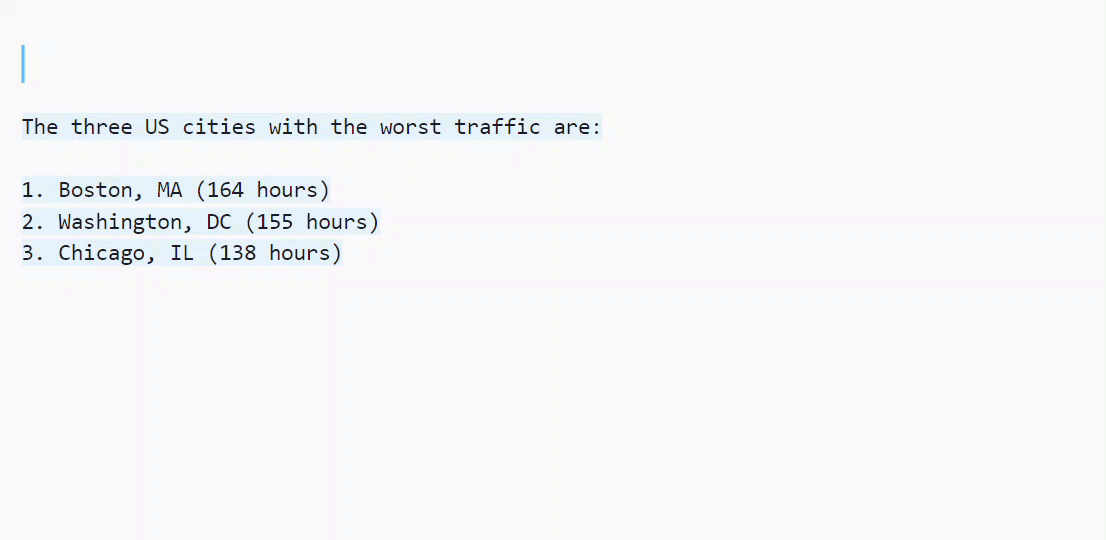OpenAi has published new versions of GPT-3 and Codex that allows you to modify or add content to existing text, rather than just completing it.
These new abilities make it easier to use the OpenAI API to update previously written material, such as editing a paragraph of text or refactoring code. Insertion is currently being tested in GitHub Copilot with encouraging results according to the OpenAi blog.
Text has generally been appended at the end of existing content in GPT-3 and Codex, dependent on the text that came before it. Writing is more than just appending— it's iterative process in which current text gets changed, whether you're dealing with text or code. GPT-3 and Codex can now alter text, either by editing what's already there or by adding new text in the middle of the material.
The new insert feature allows you to add contextually appropriate text to existing content. By providing contextual information to the model you can increase the quality of completions for tasks like composing long-form material, transitioning between paragraphs, following an outline, and guiding the model to a conclusion.
Insert is quite useful for producing source code. Codex was OpenAi's original motivation for implementing this feature since developers frequently add code to a file's middle section where previous and following code are already present. The model succeeds in completing the missing function while connecting to previously written code.
A meaningful part of writing text and code is spent editing existing content. Codex also adds a docstring and missing imports, which is not possible without knowing the code that comes after. In GitHub Copilot, Insert is currently being piloted with early promising results.
Editing existing text

By editing, I mean specifying existing text as a prompt and an instruction on how to alter it. The edits endpoint may be used to make targeted modifications such as correcting spelling, changing the tone or structure of text, or adding a poem. We've also seen edits operate effectively on empty prompts, allowing for text production similar to the completions endpoint.
What is OpenAi?
Per the OpenAi website: OpenAI is an AI research and deployment company. Our mission is to ensure that artificial general intelligence benefits all of humanity.
In December 2015, Elon Musk, Sam Altman, and other investors announced the formation of OpenAI and pledged over US$1 billion to the venture.
OpenAI’s mission is to ensure that artificial general intelligence (AGI)—by which we mean highly autonomous systems that outperform humans at most economically valuable work—benefits all of humanity.
What is Codex by OpenAi?
OpenAi has created an improved version of OpenAI Codex, the AI system that translates natural language to code, and are releasing it through the API in private beta.
Codex is the model that powers GitHub Copilot, which was built and launched in partnership with GitHub in 2021. Proficient in more than a dozen programming languages, Codex can now interpret simple commands in natural language and execute them on the user’s behalf—making it possible to build a natural language interface to existing applications.
OpenAI Codex is a descendant of GPT-3; its training data contains both natural language and billions of lines of source code from publicly available sources, including code in public GitHub repositories. OpenAI Codex is most capable in Python, but it is also proficient in over a dozen languages including JavaScript, Go, Perl, PHP, Ruby, Swift and TypeScript, and even Shell. It has a memory of 14KB for Python code, compared to GPT-3 which has only 4KB—so it can take into account over 3x as much contextual information while performing any task.
Once a programmer knows what to build, the act of writing code can be thought of as (1) breaking a problem down into simpler problems, and (2) mapping those simple problems to existing code (libraries, APIs, or functions) that already exist. The latter activity is probably the least fun part of programming (and the highest barrier to entry), and it’s where OpenAI Codex excels most.